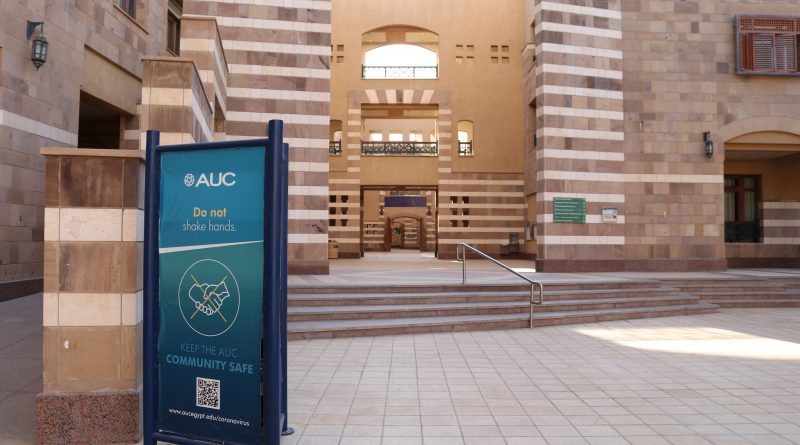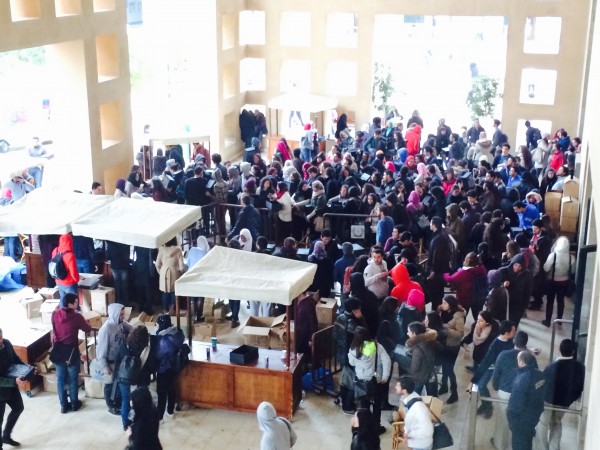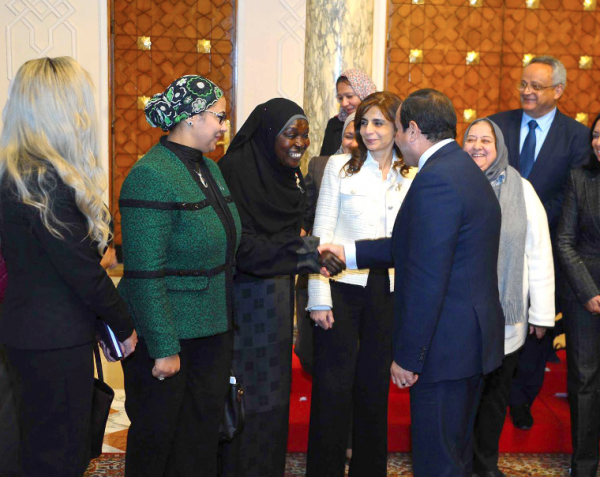HUSS School-Based Meeting and the Hurdles of Online Instruction
By: Lilian Gamal
@LillianGamal
Photo Credit: Doha Wang
As part of a series of school-based meetings, the School of Humanities and Social Sciences (HUSS) faculty met with various student representatives from different HUSS majors to discuss main issues that students have been facing with online learning.
“I must confess for all of us, AUC faculty and students, we’re all learning as we go. This is a new situation for everybody…Alongside the transition we all suffer, all of us; However, it does not mean that we do not want to address these issues,” Interim Dean of HUSS Zeinab Taha said.
Taha urged students to include their comments and remarks in the online surveys. She also emphasized that students should reach out to the chair of the appropriate department with any issues. Taha would provide necessary emails for students to use.
President of the Political Science Association and Political Science Honors Program senior Mariam Abozekry expressed her grievances over the challenging mode of instruction and unfair penalizing for participation.
“When we asked the political science student body about their experience this semester, we got mainly two answers: depression and disappointment,” Abozekry told The Caravan.
Abozekry said that the main concern of almost all students in the Political Science program was the increased workload. She added that the expectation for students to remain seated in front of their laptops for more than 12 hours a day was unreasonable.
She also said that students found it difficult to stay engaged in online classes where professors only read slides or during pre-recorded lectures.
“I know you’re trying to listen to our concerns now, but I have to say that it’s too late. We have already lost our grades. The least we deserve is the Pass/Fail system,” Abozekry said.
In addition to concerns over monotonous virtual lectures, Political Science Association Vice President Farida Yehia drew the faculty’s attention to the importance of library access for sources.
“It’s very crucial to have immediate answers and solutions that are fast. Why are HUSS students not given access to the library since all we do is write papers and find sources that are not available online?” Yehia said.
Dean of Libraries and Learning Technologies Daniel Ortiz assured students that they could fill in a request form for any materials they needed and they would be delivered to the Plaza Level of the Library or at Gate 4 (Pepsi Gate).
Ortiz added that, as a precaution, all materials would have to go into quarantine for seven days.
“We’re trying to ensure that none of you come to the library and get cross-contaminated with anything. We’ll do everything in our power to make those resources available to you,” Ortiz said.
Academics Director of the Psychology Association and Psychology senior Laila Elbeheri highlighted that psychology students have become disenchanted with the psychology program at AUC because of the lack of experiential learning.
Ethically speaking, Elbeheri mentioned that more hands-on experience and social skills are acquired at a later stage during graduate school.
“This is why we value the experiential learning experiences so highly, and why we are collectively mourning its loss,” Elbeheri told The Caravan.
Elbeheri added that imperative courses such as Psychological Statistics and Research Methods can’t afford to be taught entirely online because it’s important that students learn how to use SPSS (Software for statistical research analysis).
“I’m not alone in knowing that there have been other students who have purposefully postponed their graduation, in hopes that we would be able to return back on campus to take these really important courses,” Elbeheri said.
Other courses such as Community-Based-Learning (CBL) courses require students to implement the information taught in class into piloting a solution for an issue facing the community. The CBL aspect in these courses has degenerated in quality due to the switch to online learning.
“We’re missing out on very important experiential aspects. I do believe that some face-to-face experiential learning has to happen in order for us to be successful and if that has to be 10 feet apart, I think it’s okay. We’d love to find a way to make it work,” Elbeheri said.
Associate Dean for Graduate Studies and Associate Professor of Psychology Hani Henry spoke of the importance of empathy and understanding during these times. He said that the key word is always “flexibility” and encouraged faculty to make accommodations to students given all the stressors they mentioned.
“You expect faculty to show flexibility without violating the integrity of the educational process. It’s really about being human so we completely understand maybe we need more training,” Henry said.
Henry mentioned that he went to a summer training course for online learning prior to teaching his summer course. He said that it was really helpful and he encouraged his other colleagues to pursue similar training.
Associate Dean for Undergraduate Studies and Professor of Theatre Jillian Campana reassured students that all their academic issues pertaining to workload would be communicated thoroughly.
“The most helpful thing is these specifics that I’m writing down. The disappointment, the big things, I agree, we did do training, it should be better. We have another semester, unfortunately, probably very similar to this. But these very specifics like multiple platforms will be communicated,” Campana said.



